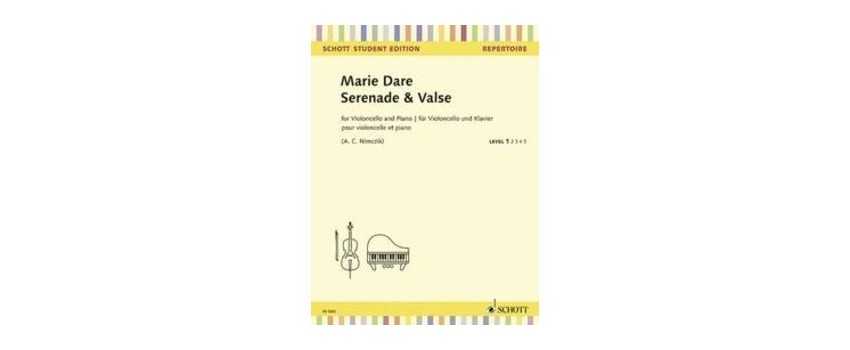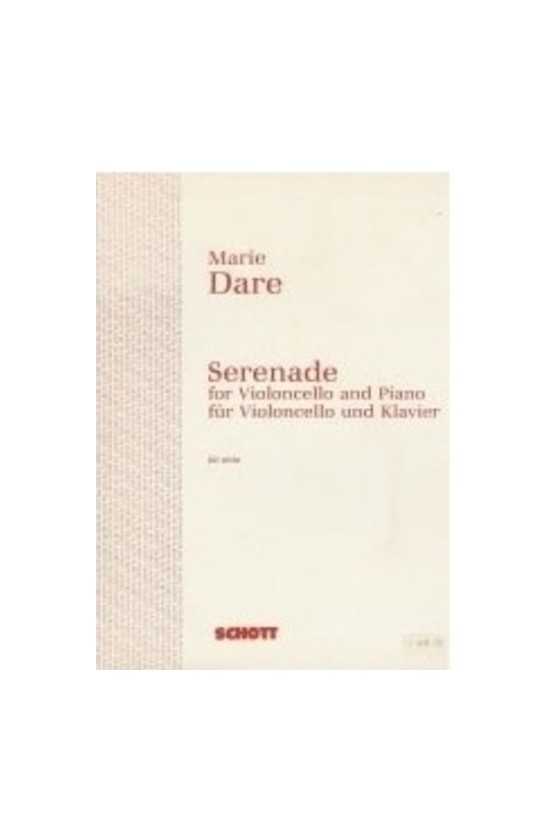Dare, Marie
Marie Dare (Born: 1902 - Died: 1976) was a Scottish composer and cellist. Some of her songs demonstrate a great depth of emotion. She is widely remembered as a reserved, "private" person but of great warmth and charm. Her music is idiomatic and somewhat conservative, including chamber, choral, and some orchestral works. She studied at the Guildhall School of Music and became famous as a cello soloist when she played at the Victory Concert at the Royal Albert Hall at the end of World War 1. Afterward, she went to Paris to learn more about cello and composition. In the second half of World War 2, she served in the Royal Naval Service of Women and became the Edinburgh Reid Orchestra's lead cellist.
After graduating from the Guildhall School of Music with a Gold Medal for instrumentalists, Marie Dare returned to Newport-on-Tay to begin a career as a composer. W H Squire, Warwick Evans, and Benjamin Dale were some of her composing professors, as was Warwick Evans. After the First World War, she was selected to perform as a soloist in the Royal Albert Hall as part of the Victory Concert. The cellist Paul Bazelaire taught her. She later studied composition with Benjamin Dale in Paris, where she won a composition award from the Society of Women Musicians for her piano trio. Aeolian Hall was dedicated to her works, and she performed in Vienna, Budapest, and London. She became the principal cello of the Reid Orchestra in Edinburgh after serving in the Women's Royal Naval Service (WRNS) during World War II. She was a longtime member of the Scottish Trio alongside Wight Henderson and Horace Fellows. Most of her works are for tiny chamber ensembles, with the cello appearing in several. Additionally, she composed several songs and three ballet compositions, including the two-piano Thumbeline.


